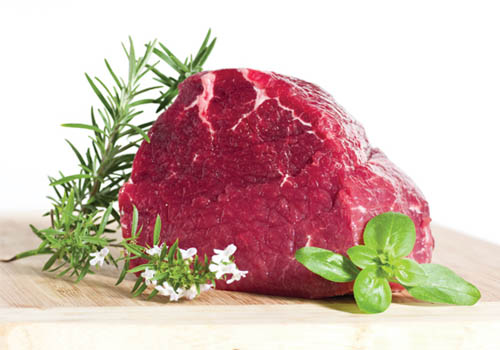The Halal industry is a rapidly expanding business now reaching 1.8 billion consumers worldwide and worth an estimated US $2.1 trillion. Sarah Campbell takes a look at what this rapid growth could mean for food suppliers in the Middle East and how the region's chefs can adapt to Halal food prep requirements.
Within the Middle East, the Halal industry is estimated to be worth more than US $20 billion, according to industry reports.
In the UAE, 80% of imported food is Halal, with products coming from countries such as Brazil and Australia, the latter exporting 43,071 tonnes of mutton, 17,685 tonnes of lamb and 3312 tonnes of beef to the Middle East in 2006 alone.
In 2007, the Emirates accounted for 7.77% of the world's lamb and beef imports and 15.38% of all poultry imports, second only to Saudi Arabia.
Amid the growing demand for Halal food products in the region, Dubai has emerged as one of the first to leverage the booming prospects within the market after establishing a highly successful food processing industry, which boasts revenues of more than US $3 billion per year.
The emirate is expected to play an important role in the future of the Halal industry, with plans by leading locally-based Halal companies to develop a credible and professional certification body to monitor and uphold high quality standards according to global industry requirements.

Advertisement
Furthermore, the emirate's food processing sector is expected to grow by 11% annually, owing to its growth as the world's third largest re-exporter, with 72% of its exports being shipped to Asia, Africa and the Gulf countries.
Supplier considerations
New suppliers continue to break into the Middle East market at an incredible rate, yet for meat suppliers from abroad, meeting Halal requirements and receiving certification can be a long and drawn out process.
The Alberta Livestock Industry Development Fund (ALIDF) is a collection of Canadian livestock farmers that are now starting to tap into the Middle East market with a selection of premium meat products.
ALIDF is a not-for-profit company that was founded on the collaborative ideals of the livestock industry and the support of the Alberta government in Canada.
"Our company, Prairie Halal Foods, is a private, Canadian-owned company. The company is a joint venture between various established and reputable Canadian companies," says general manager, Wahid Kandil.
"We mostly focus on high quality meat products that are produced by the partners of the company and our approach is to take our products directly from the farm to the end user, cutting out the middle man.
"This approach assures our customers of the quality, integrity and consistency of our products," he adds.
Prairie Halal Foods provides a basket of high quality food products such as traditional Angus beef, bison meat, elk meat and poultry items.
The current company partners include Prairie Heritage Beef Producers (a group of natural Angus beef ranchers), Canadian Rangeland Beef and Bison (elk and bison company), The Meat Grinder (Halal meat marketing and distribution company), and Canadian Premium Meats (Halal-certified slaughter plant).
For Kandil, being a Muslim has helped in setting up the UAE office and bringing the company's operations in line with Halal requirements.
"Fortunately, I am a Muslim myself, so I understand the Halal market and I have a solid understanding of the Middle East market. However, all my partners have no prior experience in the Middle East or the Halal market.
"This is the reason we have been travelling to the Middle East as a group of companies and have spent the past two years thoroughly investigating the Middle East and North Africa market," he explains.
"It takes a lot of effort and commitment for Western companies to grasp the concept of Halal and the values and rationales behind it. Our group has really put a lot of effort into understanding the Halal concept and we have developed an internal Halal protocol manual.
"In addition, all our partner companies are certified by the Islamic Society of North America."
According to Kandil, despite being a Muslim country, knowledge on Halal processes and the market is still limited in the UAE.
"The most challenging issue has been the availability of detailed market information. It is always great to visit the market and talk directly to end users but the availability of information on the market and its dynamics would speed up the process quite a bit," he admits.
Kitchen requirements
New developments in the Halal industry all mean good news for chefs working in the region.
Many chefs come to the Middle East with a basic understanding of what Halal cooking requires, and pick up the rest from more experienced team members.









 Search our database of more than 2,700 industry companies
Search our database of more than 2,700 industry companies









